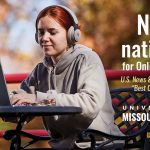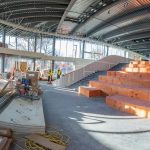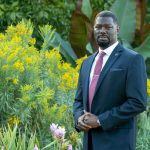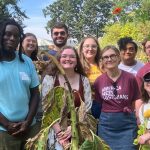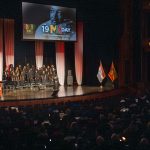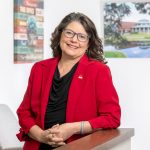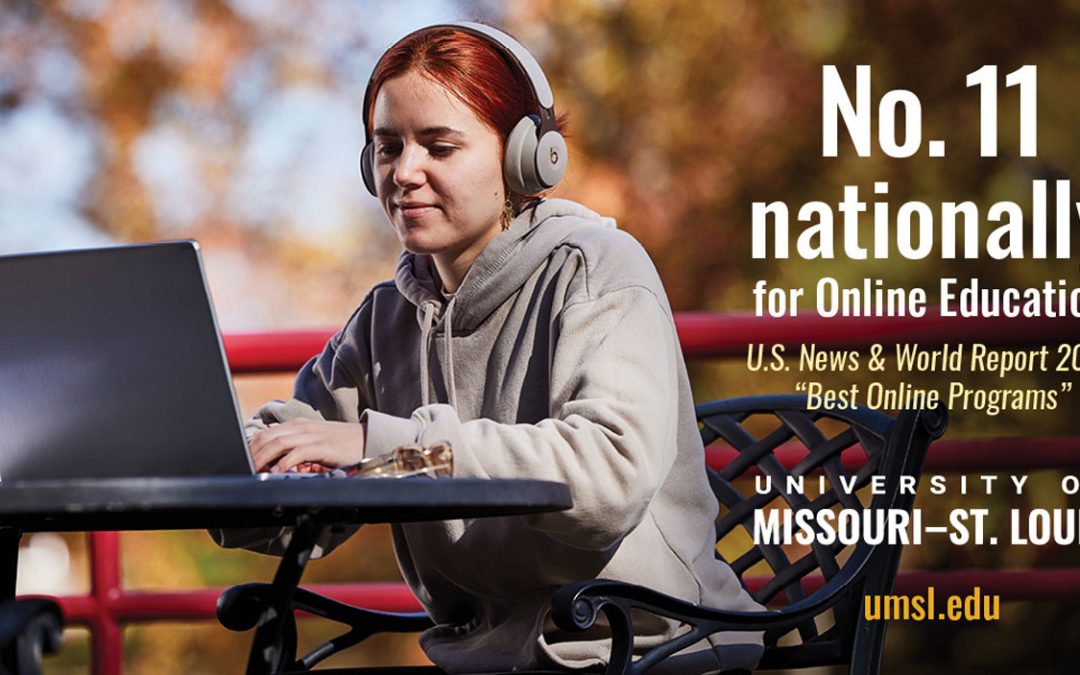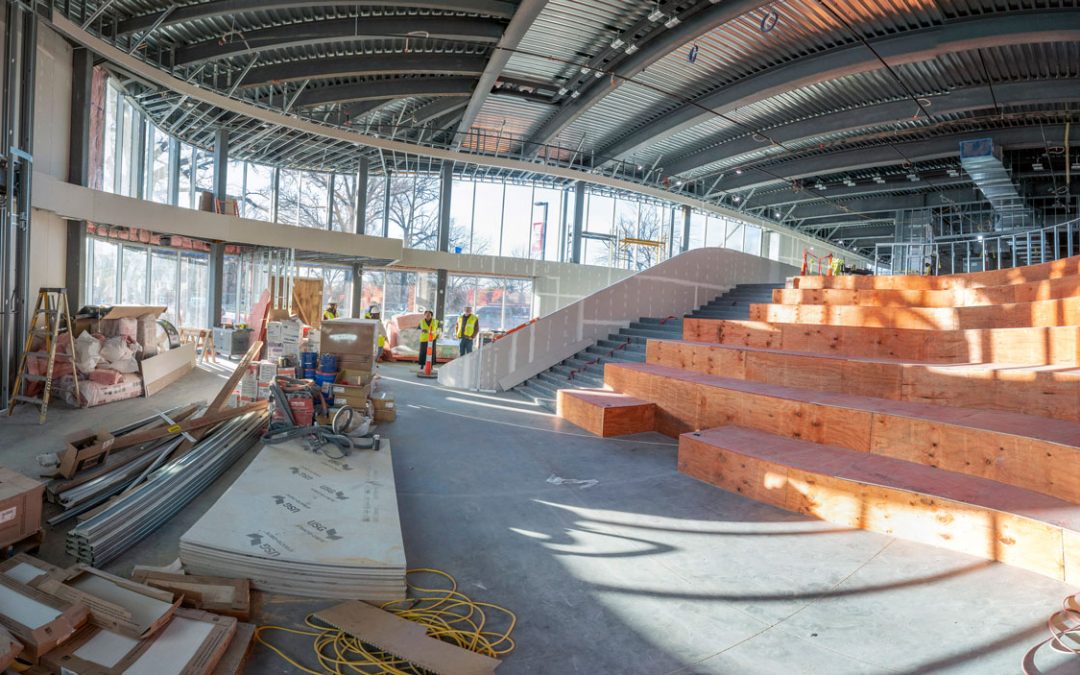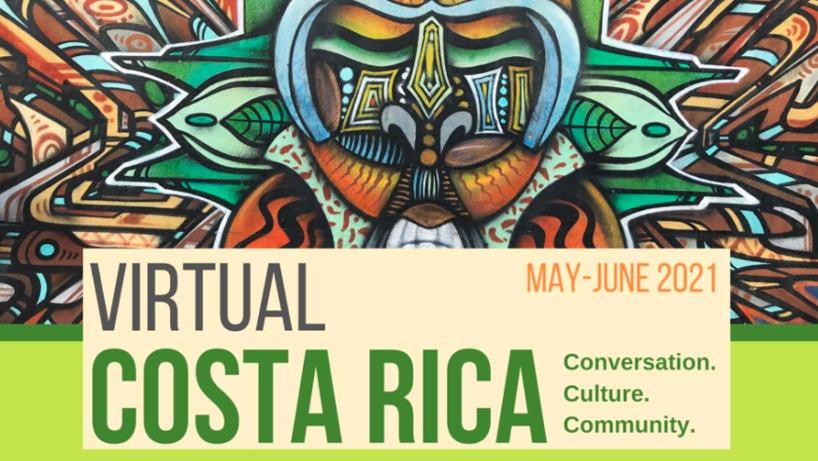
Amy D’Agrosa, assistant teaching professor of Spanish, is leading the four-week program, which runs from May 17 to June 16. D’Agrosa worked with the Costa Rica Language Academy to tailor digital offerings for UMSL students. The program will feature cultural activities such as a salsa dancing class, a cooking class, an urban art tour and a discussion about the country’s biodiversity, ecotourism and coffee industry. (Photo courtesy of Amy D’Agrosa)
This summer, Spanish students at the University of Missouri–St. Louis will learn to dance the salsa and cook Costa Rican delicacies like gallo pinto and casado – albeit it from their homes.
In response to travel restrictions related to the COVID-19 pandemic, the Department of Language and Culture and UMSL Global developed UMSL’s first virtual study abroad program.
The university, in partnership with the Costa Rican Language Academy, has adapted the standard Costa Rica study abroad program into a four-week digital offering – from May 17 to June 16 – during the upcoming summer session.
The program is usually an intensive two-week experience in the country during the winter intersession. Amy D’Agrosa, assistant teaching professor of Spanish, who was supposed to lead the program this year, aims to bring the same cultural immersion to its virtual counterpart.
After the trip was postponed this winter, D’Agrosa contacted the director of the CRLA and learned the organization was developing alternative programming for other American universities.
“I talked to my department colleagues and, of course, the Study Abroad Office to see how we could make this work,” she said. “Through a series of conversations and meetings and tailoring the program with digital offerings, we have designed a four-week immersion program, which I’m excited about.”
There are 15 slots available to upper-level Spanish students who wish to complete their three-credit-hour language immersion requirement. Those interested have until March 31 to apply.
D’Agrosa is finalizing the curriculum, but generally, students will have the opportunity to develop their Spanish language skills and learn about various aspects of the Costa Rican “Tico” culture.
They will meet with D’Agrosa during the first week of the program for orientation and initial conversation classes. In the first and fourth weeks, they’ll use the Talk Abroad platform to converse with native Spanish speakers from Costa Rica.
“We will get them prepared and ready for this virtual immersion experience that will take place the following two weeks,” D’Agrosa said. “The second and third weeks, it’s tailored language classes via the CRLA. During the day, they’ll have language class, and they’ll also have an opportunity to experience cultural components to the program, which I’m also excited about.”
The cultural components will include a salsa dancing class, a cooking class and a cultural immersion discussion, where students learn about the country’s biodiversity, ecotourism and coffee industry.
The program will also offer students a virtual urban art tour, which will explore the murals that pepper the city streets of San José, the national capital. Most importantly, in D’Agrosa’s opinion, there will video conferencing sessions with Costa Rican families.
“These are all components that students would experience in person, so we’re bringing these additional cultural experiences to the student virtually,” D’Agrosa said. “It’s not the same as being there in person. However, it’s an opportunity to engage with the culture of the country, the people, the language – all together.”
D’Agrosa wishes students could see the sea turtle sanctuary in the coastal town of Tortuguero or visit the Pachira Lodge in the tropical rainforest. But for now, she hopes the virtual program will inspire her students to see the otherworldly beaches, rainforests and volcanoes in person someday.
“What I think makes the program unique, what I’m hoping the students will take away is the ‘sabor’ – the flavor of Costa Rica,” she said. “That will invite them to desire to visit in person because it’s an exquisite place. It’s really beautiful and tropical, and it has this unique vibrancy and life. One of the taglines, if you will, that they use to express their joy is ‘pura vida,’ which means pure life.”
To apply for the program visit: https://umsl-sa.terradotta.com/index.cfm?FuseAction=Programs.ViewProgramAngular&id=43995


